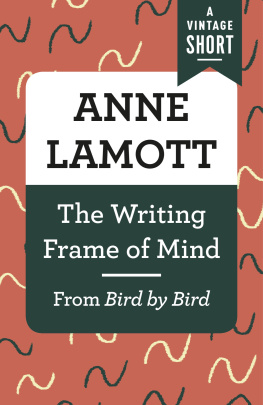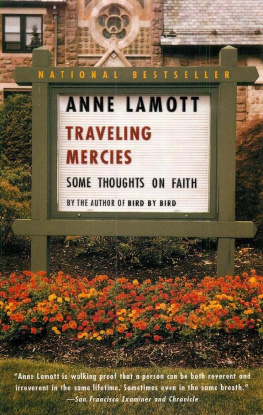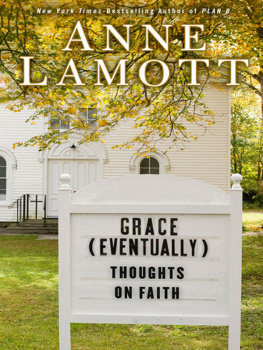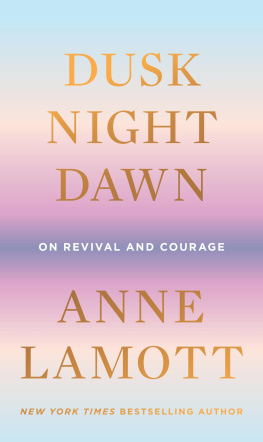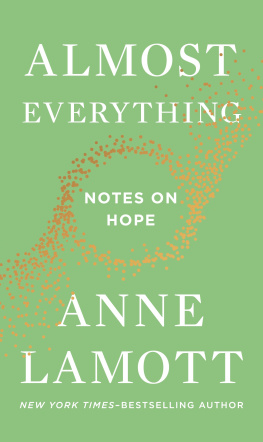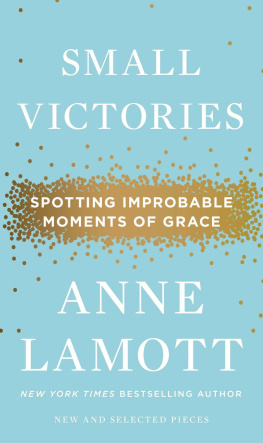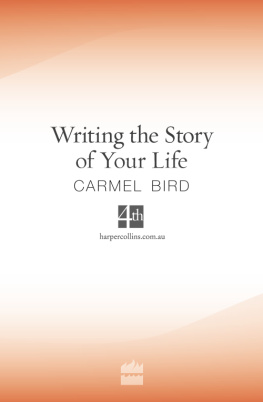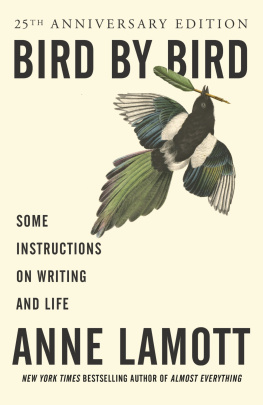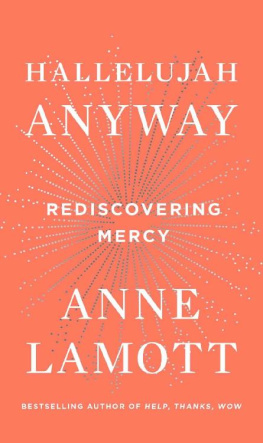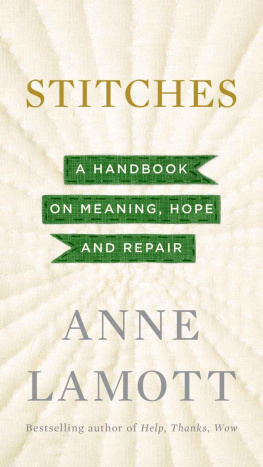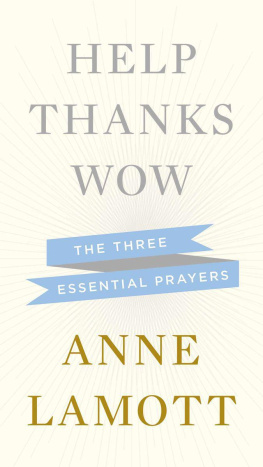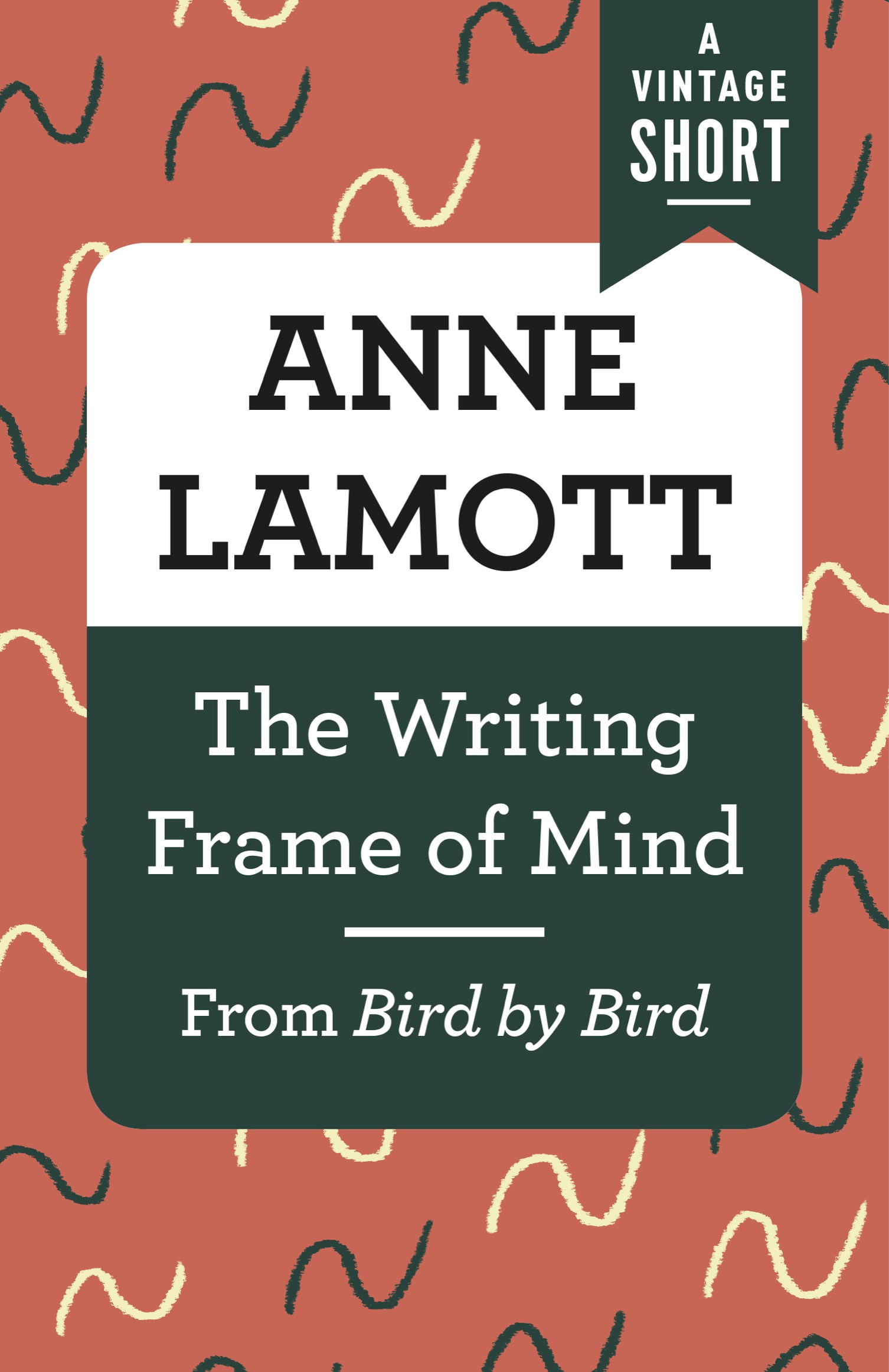Contents
Landmarks
Print Page List
Anne Lamott
Anne Lamott is the author of the New York Times bestsellers Hallelujah Anyway; Help, Thanks, Wow; Small Victories; Stitches; Some Assembly Required; Grace (Eventually); Plan B; Traveling Mercies; Bird by Bird; and Operating Instructions. She is also the author of seven novels, including Imperfect Birds and Rosie. A past recipient of a Guggenheim Fellowship and an inductee to the California Hall of Fame, she lives in Northern California.
A LSO BY A NNE L AMOTT
Nonfiction
Operating Instructions: A Journal of My Sons First Year
Bird by Bird: Some Instructions on Writing and Life
Traveling Mercies: Some Thoughts on Faith
Plan B: Further Thoughts on Faith
Grace (Eventually): Thoughts on Faith
Some Assembly Required: A Journal of My Sons First Son (with Sam Lamott)
Help, Thanks, Wow: Three Essential Prayers
Stitches: A Handbook on Meaning, Hope and Repair
Small Victories: Spotting Improbable Moments of Grace
Hallelujah Anyway: Rediscovering Mercy
Almost Everything: Notes on Hope
Fiction
Hard Laughter
Rosie
Joe Jones
All New People
Crooked Little Heart
Blue Shoe
Imperfect Birds
The Writing Frame of Mind
from Bird by Bird
by Anne Lamott
A Vintage Short
Vintage Books
A Division of Penguin Random House LLC
New York
Copyright 1994 by Anne Lamott
All rights reserved. Published in the United States by Vintage Books, a division of Penguin Random House LLC, New York, and distributed in Canada by Penguin Random House Canada Limited, Toronto. Originally published in hardcover in the United States by Pantheon Books, a division of Penguin Random House LLC, New York, in 1994.
Vintage and colophon are registered trademarks of Penguin Random House LLC.
The Cataloging-in-Publication Data for The Writing Frame of Mind is available from the Library of Congress.
Vintage eShort ISBN9780593082188
Cover design and illustration by Madeline Partner
www.vintagebooks.com
v5.4
a
Contents
Looking Around
Writing is about learning to pay attention and to communicate what is going on. Now, if you ask me, whats going on is that were all up to here in it, and probably the most important thing is that we not yell at one another. Otherwise wed all just be barking away like Pekingese: Ah! Stuck in the shit! And its your fault, you did this Writing involves seeing people suffer and, as Robert Stone once put it, finding some meaning therein. But you cant do that if youre not respectful. If you look at people and just see sloppy clothes or rich clothes, youre going to get them wrong.
The writer is a person who is standing apart, like the cheese in The Farmer in the Dell standing there alone but deciding to take a few notes. Youre outside, but you can see things up close through your binoculars. Your job is to present clearly your viewpoint, your line of vision. Your job is to see people as they really are, and to do this, you have to know who you are in the most compassionate possible sense. Then you can recognize others. Its simple in concept, but not that easy to do. My Uncle Ben wrote me a letter twenty years ago in which he said, Sometimes you run into someone, regardless of age or sex, whom you know absolutely to be an independently operating part of the Whole that goes on all the time inside yourself, and the eye-motes go click and you hear the tribal tones of voice resonate, and there it isyou recognize them. That is what Im talking about: you want your readers eye-motes to go click! with recognition as they begin to understand one of your characters, but you probably wont be able to present a character that recognizable if you do not first have self-compassion.
It is relatively easy to look tenderly and with recognition at a child, especially your own child and especially when he is being cute or funny, even if he is hurting your feelings. And its relatively easy to look tenderly at, say, a chipmunk and even to see it with some clarity, to see that real life is right there at your feet, or at least right there in that low branch, to recognize this living breathing animal with its own agenda, to hear its sharp, high-pitched chirps, and yet not get all caught up in its cuteness. I dont want to sound too Cosmica Rama here, but in those moments, you see that you and the chipmunk are alike, are a part of a whole. I think we would see this more often if we didnt have our conscious minds. The conscious mind seems to block that feeling of oneness so we can function efficiently, maneuver in the world a little bit better, get our taxes done on time. But its even possible to have this feeling when you seereally seea police officer, when you look right at him and you see that hes a living breathing person who like everyone else is suffering like a son of a bitch, and you dont see him with a transparency over him of all the images of violence and chaos and danger that cops represent. You accept him as an equal.
Obviously, its harder by far to look at yourself with this same sense of compassionate detachment. Practice helps. As with exercise, you may be sore the first few days, but then you will get a little bit better at it every day. I am learning slowly to bring my crazy pinball-machine mind back to this place of friendly detachment toward myself, so I can look out at the world and see all those other things with respect. Try looking at your mind as a wayward puppy that you are trying to paper train. You dont drop-kick a puppy into the neighbors yard every time it piddles on the floor. You just keep bringing it back to the newspaper. So I keep trying gently to bring my mind back to what is really there to be seen, maybe to be seen and noted with a kind of reverence. Because if I dont learn to do this, I think Ill keep getting things wrong.
I honestly think in order to be a writer, you have to learn to be reverent. If not, why are you writing? Why are you here?
Lets think of reverence as awe, as presence in and openness to the world. The alternative is that we stultify, we shut down. Think of those times when youve read prose or poetry that is presented in such a way that you have a fleeting sense of being startled by beauty or insight, by a glimpse into someones soul. All of a sudden everything seems to fit together or at least to have some meaning for a moment. This is our goal as writers, I think; to help others have this sense ofplease forgive mewonder, of seeing things anew, things that can catch us off guard, that break in on our small, bordered worlds. When this happens, everything feels more spacious. Try walking around with a child whos going, Wow, wow! Look at that dirty dog! Look at that burned-down house! Look at that red sky! And the child points and you look, and you see, and you start going, Wow! Look at that huge crazy hedge! Look at that teeny little baby! Look at the scary dark cloud! I think this is how we are supposed to be in the worldpresent and in awe. Taped to the wall above my desk is a wonderful poem by the Persian mystic, Rumi:
Gods joy moves from unmarked box to unmarked box,
from cell to cell. As rainwater, down into flowerbed.
As roses, up from ground.

